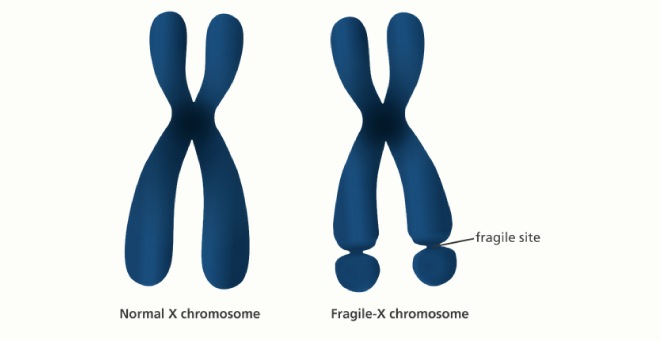
UMass Chan Medical School and QurAlis Corporation, a clinical-stage biotechnology company investigating treatments for amyotrophic lateral sclerosis, frontotemporal dementia and other neurodegenerative and neurological diseases, have formed a collaboration to investigate an antisense oligonucleotide technology for the potential treatment of fragile X syndrome.
Antisense oligonucleotides are short DNA or RNA molecules that can bind to RNA in a target-specific manner and ultimately modulate protein expressions through various mechanisms. These molecules have shown incredible potential in the treatment of genetic disorders by targeting disease at the RNA level.
Under the agreement, Joel Richter, PhD, the Arthur F. Koskinas Chair in Neuroscience and professor of molecular medicine at UMass Chan and QurAlis will explore the biology of fragile X syndrome to determine and confirm relevant targets that could enable antisense oligonucleotide-mediated correction of the syndrome.
“We are excited to be partnering with QurAlis on the next step of this research,” said Dr. Richter. “QurAlis’ translational knowledge and clinical trial experience in antisense oligonucleotide splicing for neurodegenerative disorders is an important component for bridging the gap between biomedical discoveries made in the laboratory and delivering therapies to patients in the clinic. With their help, we are hopeful that one day we may be able to offer patients with fragile X meaningful treatment options.”
Fragile X syndrome is the leading inherited form of intellectual disability and a known cause of autism. It is a genetic condition caused by a mutation of a single gene—FMR1—on the X chromosome. This mutation of FMR1 causes a range of developmental issues, including learning disabilities, behavioral challenges and cognitive impairment.
An orphan disease, fragile X affects approximately 87,000 individuals in the U.S. alone—one in 4,000 men and one in 6,000 women. Though fragile X occurs in both genders, males are more frequently affected than females, and generally with greater severity. In addition to intellectual disability, fragile X patients endure a wide range of disabling symptoms including severe anxiety, social aversion, hyperactivity and attention deficit, sensory hypersensitivity, aggression, developmental seizures, and others. There are no disease-modifying therapies available for the syndrome, although interventions such as special education, speech therapy, physical therapy, or behavioral therapy and drugs providing symptomatic relief can provide the opportunity for optimizing a full range of skills.
Richter and UMass Chan colleagues Sneha Shah, PhD, assistant professor of molecular medicine, and Jonathan K. Watts, PhD, professor of RNA therapeutics, and Elizabeth Berry-Kravis, MD, PhD, at RUSH University Medical Center, have shown that aberrant alternative splicing of messenger RNA plays a fundamental role in fragile X syndrome. Working with patient-derived cells, they have shown that a combination of synthesized antisense oligonucleotides can successfully inhibit the aberrant splicing and rescue proper FMR1 mRNA splicing. The next step in this work is to translate these findings to the clinic.
“QurAlis’ deep knowledge and expertise of antisense oligonucleotide splicing targets combined with our technological platform gives us the latitude to go beyond neurodegeneration to explore the potential of bringing much-needed precision medicines for other serious neurological diseases like fragile X syndrome,” said Kasper Roet, PhD, chief executive officer and co-founder of QurAlis. “Our partnership and collaboration with UMass Chan in fragile X underscore the enormous value of partnerships between academia and industry to drive innovation forward to help fulfill unmet medical needs for patients. We are excited to expand our scope into a new therapeutic area and to make use of our expertise in splicing targets so that QurAlis can continue the goal of making a real difference in patients’ lives.”
The partnership was facilitated by BRIDGE Innovation and Business Development at UMass Chan Medical School.

